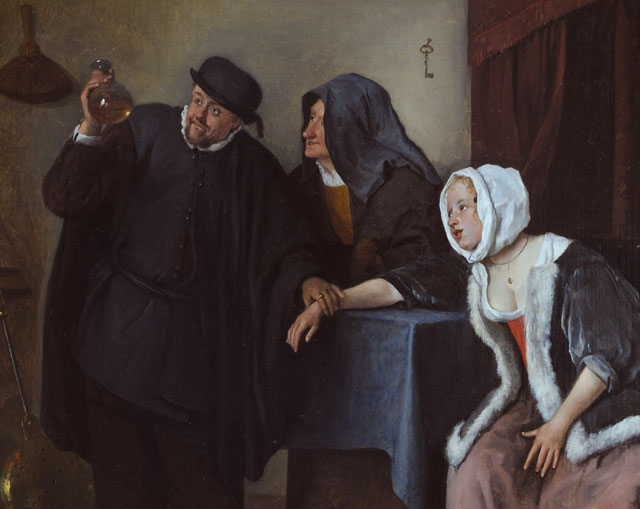About type 1 diabetes

What is type 1 diabetes?
Diabetes mellitus is a chronic metabolic disease in which the blood sugar level is elevated, called hyperglycemia. This can have various causes: either your body does not make enough of the hormone insulin, or the insulin it produces is not effective enough. In both cases, your body cells cannot absorb enough sugar (glucose), causing it to build up in the blood. We call this situation diabetes mellitus or diabetes. Insulin regulates blood sugar.
Types
There are different types of diabetes. The Hippo & Friends type 1 diabetes fund focuses in particular on type 1 diabetes, a chronic autoimmune disease that occurs in 10-15% of all forms of diabetes and usually, but not exclusively, in children, adolescents and young adults among the age 40 years. Type 1 diabetes cannot be cured yet.

Jan Steen’s piskijker (the urine examiner), c.1663-1665 (©Collection Museum De Lakenhal, Leiden, The Netherlands)
The most common variant is type 2 diabetes: 85% of people with diabetes have type 2 diabetes. People wth type 2 diabetes have too little insulin in the body and do not respond well to it (called insulin resistance). Heredity plays a role in the development of type 2 diabetes, but obesity and lack of exercise are often the cause. Type 2 diabetes develops mainly, but not exclusively, in old age.
Normally, the immune system will only respond to germs or foreign invaders, but in some people the immune system makes a mistake and cleans up the body's own cells. In type 1 diabetes, the insulin-producing cells of the pancreas, called beta cells, are destroyed by the immune system. This creates a shortage of insulin, which increases the sugar level in the blood. From diagnosis, it is necessary to measure blood sugar levels several times a day and to inject insulin or to wear an insulin pump. People with type 1 diabetes must calculate how much insulin is needed at each meal, taking into account a variety of activities. White people are more affected than colored people, and about as many men as women.
There are also other variants of diabetes such as gestational diabetes and some rare forms of diabetes about which you can find more information on the website of the UZLeuven diabetes center (in Flemish), JDRF or Diabetes UK.
